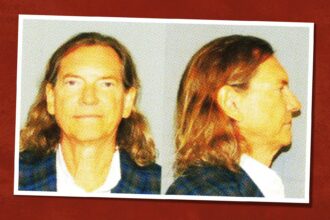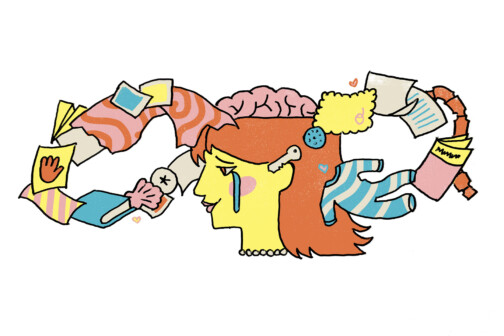A year ago, Councilman Philip Kingston led an effort to bring Dallas drug policy in line with the reforms that have been adopted across the country by reducing possession of small amounts of marijuana to a ticketable offense. The measure was not a radical one for Texas, where the state legislature has already accommodated such moves by local governments; it falls short of what’s been done by Houston, where police no longer even write tickets for personal use weed. But it was too much for the North Dallas/South Dallas alliance, and the proposal failed.
On Wednesday, Kingston returned to the council with an even stronger cite-and-release measure involving a fully-fledged change rather than the mere pilot program that was shot down last time. This time it passed. Lyndon Johnson used to tell staffers, “If you do everything — absolutely everything — you’ll win.” Kingston didn’t do everything, exactly, but he did quite a bit, reaching out to newish District Attorney Faith Johnson and the law enforcement community to win official support in some cases and, in others, convincing traditional foes of drug reform to at least refrain from coming out in opposition.
In doing so, he left the council’s remaining drug warriors with no firm ground from which to mount their own fight. The actual data gleaned from comparing the results of treatment-based policies to those based on incarceration has never been of much help to the police state crowd, which is why they tend not to bring it up, instead citing such “experts” as the police organizations that oppose decriminalization (and, naturally, ignoring the increasing number of such bodies that have come to support it). Extraordinarily enough, two council members tried to claim law enforcement and prosecutorial support for their position even after it had been made clear, several times, that no such support existed; not even the presence of a Dallas Police representative who’d told the council that the cops weren’t taking a position could shame a certain North Dallas crypto-authoritarian into refraining from her claims to the contrary, as we’ll see.
Given how elegantly the prohibitionist faction shifts from the let’s-do-whatever-the-prosecutors-say position to the who-cares-what-prosecutors-think camp — welcome, by the way — Kingston could have brought in William Bennett to declare peyote a beautiful and mind-expanding sacrament of the Great Spirit Mother Whose Law is Love and it wouldn’t have made a difference to these people. Instead, such things as the DA’s blessing were helpful largely as cover for the several council members who had opposed cite-and-release last year but were ready to vote it in this year, in stronger form and days before an election. This was Kingston’s real achievement — splitting off several of the black members from their consistent allies in North Dallas, and even getting one formerly reliable opponent, Tiffinni Young, to push the issue herself.
How exactly this was accomplished is a mystery. Both Young and Erik Wilson justified their switch by pointing out that these laws disproportionately target blacks. It’s hard to accept that this is something they’ve just learned about at some point since the last debate on this a year ago; if our city’s black leadership has actually come to give a shit about the drug war that has done more to destroy the black community than any other factor in modern American life, then this is a radical development indeed. It’s more likely that some other, more political argument has been successfully made outside of view. The real radical development here may be a partial reconfiguration of alliances whereby the central Dallas technocratic bloc, represented most fiercely by Kingston and Councilman Scott Griggs, will be able to depend on Young or Wilson on other issues. This would be of extraordinary significance on a council where crucial votes often go 8 to 7, and in a time when Kingston’s combative reform agenda is proving increasingly viable.
But the most fascinating aspect of Wednesday’s debate remains the sheer dishonesty of the North Dallas bloc. It began with Councilwoman Jennifer Staubach Gates, who made a motion to send the item to the public safety committee due to vague “concerns,” which she said were shared by the Dallas Police Department; chief among these was that this change would not, in fact, save the police time and energy, as has been claimed by its supporters. Strangely, she also proposed that the measure be reviewed for “economic impact.”
Councilwoman Sandy Greyson stated that she would vote against the measure because it wouldn’t apply to certain of her constituents living in places like Rockwall that won’t be adopting it. The law would thus be applied differently to Dallasites and non-Dallasites, in an “intentionally discriminating” manner. She addressed the audience, made up largely of cite-and-release supporters, telling them that “you believe” that the law is currently enforced in an unfair way against certain groups (they presumably believe this because of the data, rarely even disputed anymore, that blacks and Hispanics are locked up at higher rates than whites for similar offenses, among other, similar findings). “Substituting one kind of discrimination for another kind of discrimination is not good policy,” Greyson concluded, equating being treated differently because you live in Rockwall and your local government chose not to participate in measure applying to Dallas with being treated differently because you’re a member of a racial minority that has been regularly subject to various forms of injustice for generations. “And it is not justice.”
Mayor Mike Rawlings had to shout down the catcalls from astonished and outraged attendees.
It was time for Councilman Rickey Callahan, who characterized any objection to sending this back to committee as a slight against “transparency” and claimed that former Police Chief Brown had told him that almost all of those cited will later be arrested anyway because they won’t take care of their citations. “What about personal responsibility?” he added, before describing an imaginary “scenario” about someone who gets cited for marijuana and is happy but then gets to work and it turns out he’s going to be drug tested anyway. The story ends with the protagonist, voiced by Callahan, saying, “Oh no, I’ve got THC in my body or something.” “And then,” Callahan explained, “he’s going to have to deal with that.”
Also, it was “interesting” that these other four counties didn’t support it — indeed, a team of political scientists should be dispatched to the rural areas outside of Dallas to discern why its residents have different opinions on some issues than people in the nearby cities as something like this may never happen again. Plus, he said, “I’m not sure how much in favor Dallas County is in favor of it as this point,” and then asked if anyone knew. The police representative who’d been called in to answer questions knew. The county was in favor of it.
Callahan asked if the cop thought it was okay to just pass this without “vetting” in the committee, at which point the mayor told him to stop. The cop thanked the mayor.
Councilwoman Carolyn King Arnold, who opposed the measure last time and ended up voting against this version as well, asked the police rep to explain the process. He explained that a supervisor would come down, weigh the drugs, and take them in, while the other officer would check the citizen’s identification and get a thumbprint and whatnot. Arnold kept asking about how long it would take the supervisor to get down there; it would vary, as is always the case. As came out later during questioning by Wilson, none of this matters in terms of determining how much time this would take compared to a regular arrest, as supervisors always come down for drug offenses; the supervisor also specified that the citation process would save something up to an hour of work for the responding officer per encounter.
It was time for Gates to pretend that this was all going very well. She asked the officer how many arrests had been made for marijuana and nothing else in 2016, which turned out to be a bit over 450. “I think it’s evident now why people didn’t want this brief,” she proclaimed, as it’s now been revealed that “this is not going to save police time at all” even though the cop had said otherwise not 15 minutes prior.
“I just don’t get why people got to be high all the time,” said Callahan, summing up the argument for state control of private behavior.
Gates wanted more discussion. “We’ve discussed this, for 18 months,” said Rawlings, who called the vote. Gates made little pouty sounds. Cite and release was passed 10 to 5.






